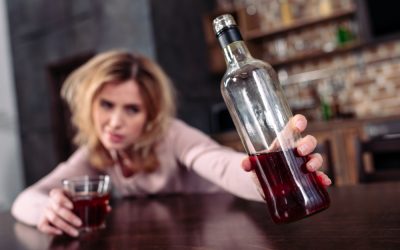qeydiyyat, bonuslar, yukle, depozi
June 22, 2022Mostbet, Azərbaycanda ən yaxşı onlayn kazinolardan bir
June 24, 2022Failure to address and maintain these triggers during the recovery process only serves to increase the risk of relapse. For people with past substance use disorder, triggers can be any internal or external stimulus that intensely and often uncontrollably reminds them of using drugs or alcohol. Avoiding triggers is only one part of the puzzle when it comes to addiction and recovery. Avoiding all of your triggers isn’t always an option, but running into one when you’re going about your daily business doesn’t necessarily have to trigger a relapse. Here’s a quick rundown of some of our favorite coping mechanisms.
Others find success with therapy in addition to self-help groups or other means of support. Learning tools to manage triggers can make a big difference in how https://velobarnaul.ru/events/2018/44984-triatlon-di you respond to — and ultimately cope with — them. At the Massachusetts Center for Addiction, we provide personalized, comprehensive treatment programs.
Alcohol Use Disorder
For example, a news report covering a trauma similar to what you experienced might trigger symptoms of PTSD. However, other cues are more subtle reminders that you might not even notice until after http://livebali.net/2015/05/19/bali-singapore-visa-run/ you’ve had a negative reaction. Trial and error can help each person determine what works best for them. Remember that different coping strategies may work for different triggers and emotions.

Addiction is often the result of those with mental illness self-medicating to reduce the severity or frequency of the symptoms of that mental illness. Only about 2% of drinkers in this group has alcohol use disorder. Heavy drinking during pregnancy can cause brain damage and other serious problems in the baby. Because it is not yet known whether any amount of alcohol is safe for a developing baby, women who are pregnant or may become pregnant should not drink. This website utilizes various technologies that are meant to make it as accessible as possible at all times. We utilize an accessibility interface that allows persons with specific disabilities to adjust the website’s UI (user interface) and design it to their personal needs.
Challenging Emotions
Some can push individuals to adopt unhealthy ways of coping, such as self-harm, harm to others, and substance abuse. “An example might be a person with a substance use disorder who finds walking by a bar or smelling alcohol prompts cravings and thoughts of drinking,” he explains. Triggers http://notsent.ru/i-just-want-share-my-testimony for relapse are situations that remind individuals of their drug use. Triggers are psychological, emotional, social and situational cues that can induce cravings. Strong cravings that crop up in response to triggers can be difficult to curb without the right support and resources.
- Developing coping strategies for emotional factors and skills to navigate environmental triggers is crucial.
- Researchers showed the participants photos of cocaine and related situations and found that the images resulted in a subconscious emotional response in the brain.
- Proponents of trigger warnings say they give a person a chance to prepare for the potential trigger or even avoid it.
- If you’re not sure how to confront these situations, contact us today.
Granted these feelings are positive, they can easily trigger relapses. For example, most celebrations involve substance use among-st friends and family. Therefore, if you’re in a drug and alcohol recovery stage, this environment can inspire you to feel celebratory and want to participate. Long-term drug use creates an association in the brain between daily routines and drug experiences.
How to Identify and Cope With Your PTSD Triggers
Using drugs or alcohol over the long term builds associations between a person’s daily routine and their experiences with intoxication. As a result, certain cues immediately flip the switch on the association and activate the craving reflex in response to external or internal triggers in recovery. Triggers may decrease in frequency the longer someone abstains from substance use, but anyone in recovery needs to be prepared to respond appropriately when triggers do arise. Individuals with problematic triggers may not know the cause and can benefit from therapy. Therapy or treatment for distressing triggers can reduce the likelihood of one developing troubling compulsions and chemical use disorders. Therapists in rehab facilities can offer individuals tools and ideas that can be helpful while battling troubling emotions and compulsions.
